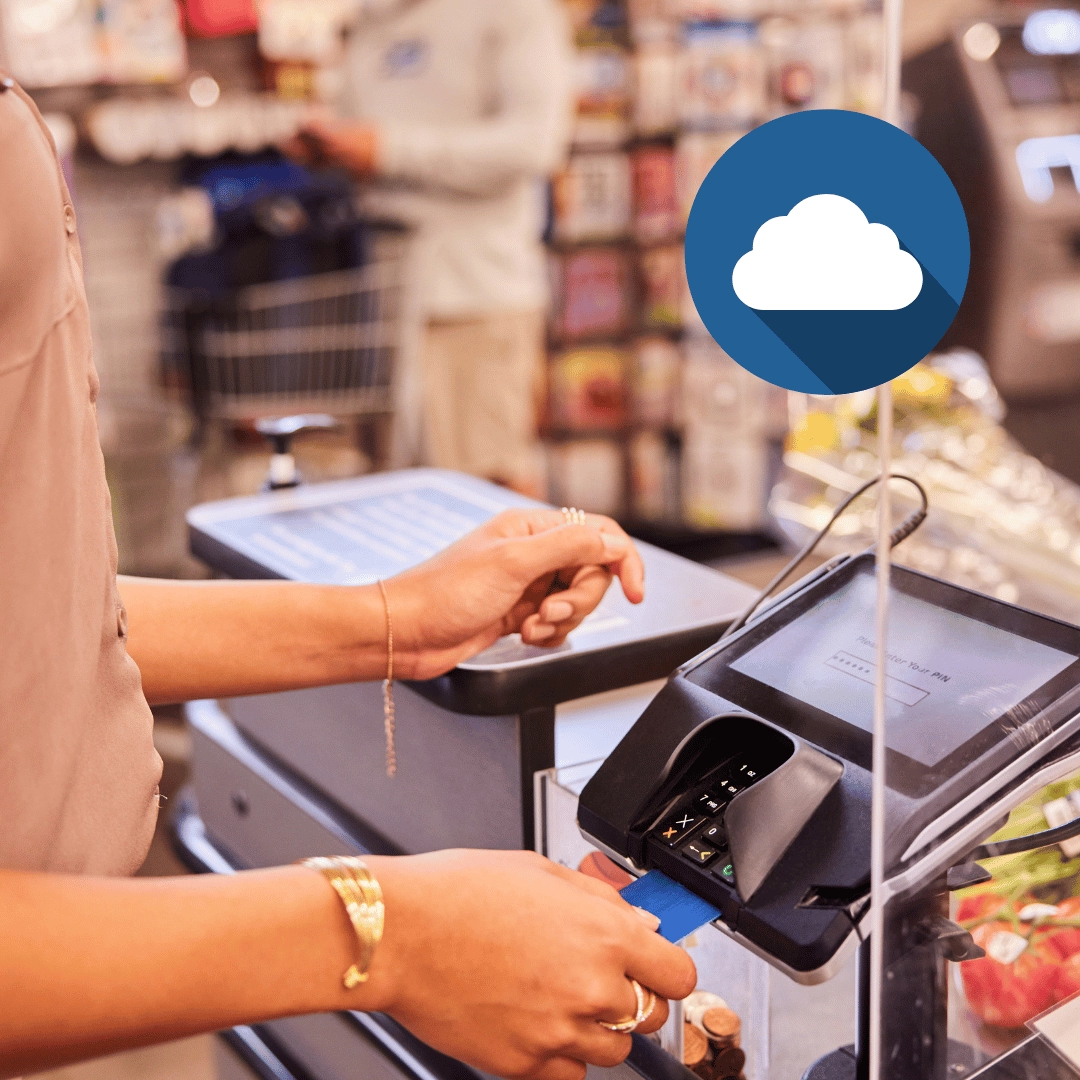Traditional Cash Register vs POS System Features and Benefits Compared

What Is a Traditional Cash Register
Definition and Primary Functions
A traditional cash register is a mechanical or electronic device designed mainly to record sales transactions and store cash securely. It serves as a basic checkout tool that helps businesses tally the total cost of purchases, calculate change for customers, and keep a physical record of sales through printed receipts or internal logs.
The core primary function is simple: process payments and organize cash flow at the point of sale without complex digital capabilities like inventory tracking or customer management.
Typical Features of Mechanical and Electronic Cash Registers
Traditional cash registers come in two main types: mechanical and electronic. Both types focus on handling sales and cash counting but differ in technology and user experience.
Mechanical cash registers
- Manually operated keys or levers to enter prices
- Printed paper tape rolls for receipts and sales records
- Physical cash drawer with compartments for bills and coins
- Limited to basic arithmetic for totals and change
Electronic cash registers
- Digital keypad or programmable buttons
- Small LCD screens showing transaction details
- Ability to store basic product codes and prices
- Simple receipt printers
- Often include a calculator function for manual entry
Common User Scenarios and Types of Businesses Using Traditional Cash Registers
Traditional cash registers are still widely used, especially among small businesses with straightforward sales processes. They fit well where simplicity and low cost are top priorities, and where advanced sales data is not critical.
Typical users include:
- Small local shops and kiosks handling cash-only sales
- Food trucks and popup stands needing a reliable basic register
- Service providers like salons with uncomplicated billing needs
- Small-scale retailers operating with low transaction volumes
- Businesses without consistent internet access relying on offline systems
Overall, the traditional cash register offers easy-to-use, dependable tools for simple sales tracking, aligning well with businesses that don’t require advanced features like inventory management, reporting, or customer relationship integration.
For more details on how cash registers work and their hardware, check out how cash registers work and the basics of cash register hardware for retail.
What Is a POS System
A POS system (Point of Sale system) goes beyond a traditional cash register by combining hardware and software to handle sales and business management tasks. While traditional cash registers mainly track sales and hold cash, POS systems have evolved to become all-in-one tools that help streamline daily operations.
Evolution From Traditional Registers
Originally, POS systems started as simple upgrades to cash registers, adding digital screens and basic sales tracking. Today, they have grown into comprehensive platforms that manage not only sales but also inventory, customer data, and reporting—all in one place. This evolution allows businesses to get real-time insights and control that traditional registers simply can’t offer.
Core Features of POS Systems
Sales processing: Fast and accurate transaction handling including barcodes, discounts, and multiple payment types.
Inventory management: Tracks stock levels, alerts for restocking, and even automates ordering.
Reporting and analytics: Generates detailed sales reports, profit margins, and customer data to support smarter decisions.
CRM integration: Stores customer information, manages loyalty programs, and helps personalize marketing efforts.
Types of POS Systems
- Cloud-based POS: Runs on the internet, so you can access data from anywhere and updates happen automatically. Ideal for multi-location tracking and remote management.
- Mobile POS: Uses tablets or smartphones, perfect for on-the-go sales like food trucks or pop-up shops.
- Desktop POS: Installed on a dedicated computer, often favored by stores needing robust hardware and local control without relying on constant internet access.
Each POS system type offers flexibility depending on your business needs—from a small local shop to larger retail or hospitality environments looking for advanced tools.
Key Differences Between Traditional Cash Registers and POS Systems
When comparing a traditional cash register vs POS system, it’s clear they differ a lot in technology, features, and usability. Here’s a straightforward look at the main distinctions.
Technology and Functionality Comparison
- Traditional Cash Registers are mainly designed for basic sales transactions and cash counting. They handle simple pricing, totals, and cash drawer operations.
- POS Systems go beyond just sales. They manage inventory, customer data, real-time sales tracking, reporting, and often include loyalty programs and employee management.
Hardware and Software Components
| Feature | Traditional Cash Register | POS System |
|---|---|---|
| Hardware | Mechanical or simple electronic unit with built-in drawer and keypad | Touchscreen terminals, barcode scanners, tablets, mobile devices, receipt printers |
| Software | Limited, mostly firmware for sales operation | Advanced software for sales, inventory, analytics, CRM, and integrations |
User Interface and Ease of Use
- Traditional cash registers offer basic buttons and manual entry, so the learning curve is low but functionality is limited.
- POS systems feature user-friendly touchscreens and graphical interfaces, designed to speed up transactions and ease training once set up properly.
Integration Capabilities with Other Business Tools
- Traditional Registers operate mostly standalone with no real integration options.
- POS Systems support integration with a broad range of tools including accounting software, email marketing, inventory suppliers, payment gateways, and even e-commerce platforms. This streamlines operations across multiple channels.
Flexibility and Scalability
| Aspect | Traditional Cash Register | POS System |
|---|---|---|
| Upgrading Features | Limited, often hardware-dependent | Easy updates via software, scalable modules |
| Business Growth | Hard to adapt to larger operations | Supports multi-location setups, remote management |
| Payment Options | Cash and basic cards | Mobile payments, contactless, gift cards, digital wallets |
Overall, POS systems offer far greater flexibility and scalability, making them a better fit for businesses that plan to grow or need integrated business management. Traditional cash registers remain suitable for simple and smaller setups with limited requirements.
Benefits of Using Traditional Cash Registers vs POS Systems
Traditional cash registers continue to serve many businesses, especially smaller ones, due to several clear advantages when compared to modern POS systems. Knowing these benefits can help you decide if a traditional cash register fits your local business needs.
Simplicity and Ease of Use
One of the biggest strengths of traditional cash registers is their simplicity. They focus on basic sales transactions and cash counting without complicated menus or features. This makes them ideal for businesses that need a straightforward solution without the learning curve.
- Intuitive buttons and displays, no unnecessary options
- Quick to train new staff with minimal instruction
- Works well for cash-heavy businesses like small shops or food stands
Lower Upfront Cost
Traditional cash registers usually come with a lower upfront price compared to POS systems, which often require additional hardware, software subscriptions, and ongoing maintenance fees.
- Affordable for startups or low-budget operations
- No monthly software fees or cloud subscriptions
- Simple hardware means fewer replacement costs
Reliability in Low Tech or Small Scale Environments
For businesses in areas with limited internet or power disruptions, traditional cash registers offer unmatched reliability. They do not rely on cloud connections or complex software that can fail or need updates.
- Operates independently from internet or external networks
- Less prone to technical glitches during busy hours
- Suitable for small-scale environments such as kiosks or farmers markets
Minimal Training Required
Because these machines focus on basic functions, employees can be trained in minutes without the need for manuals or extensive practice.
- Staff spend less time learning to use the device
- Reduces onboarding time for temporary or part-time workers
- Ideal for businesses where employees frequently rotate roles
| Benefit | Traditional Cash Register | POS System |
|---|---|---|
| Ease of Use | Simple, button-based interface | Feature-rich, may be complex |
| Upfront Cost | Low initial investment | Higher due to hardware & software |
| Reliability | Works offline, fewer technical issues | Needs internet & software updates |
| Training Time | Minimal, intuitive to operate | Requires training on features |
For more about when traditional registers still make sense, check out Why Cash Registers Are Still Relevant in 2025.
Understanding these benefits helps local US businesses decide if a traditional cash register fits their daily operations or if it’s time to explore the enhanced features of a POS system.
Advantages of Upgrading to a POS System for Local Businesses
Switching from a traditional cash register to a POS system brings significant benefits that can transform how your business operates. Here’s why many local businesses in the U.S. find the upgrade worthwhile:
Enhanced Sales and Inventory Management
A POS system doesn’t just ring up sales; it tracks your inventory in real time. This means:
- Automatic stock updates after each sale
- Alerts when products run low
- Ability to manage purchase orders directly through the system
This level of control helps prevent overstocking or running out of popular items, which is something traditional cash registers just can’t do.
Detailed Sales Reporting and Analytics
With a POS system, you get detailed reports that show you what’s selling, when, and to whom. Key insights include:
- Daily and monthly sales summaries
- Best-selling products and slow movers
- Employee sales performance
- Customer purchase histories
Access to this data helps you make smarter decisions on promotions, pricing, and staffing.
Improved Customer Experience with Loyalty Programs and CRM
Modern POS systems integrate customer relationship management (CRM), allowing you to:
- Set up loyalty programs to reward repeat customers
- Store customer preferences and purchase history
- Send personalized promotions and follow-ups
This level of engagement builds loyalty and can increase repeat business, giving you an edge over competitors using basic cash registers.
Multi Location Management and Centralized Data
For businesses with more than one location, POS systems offer centralized management:
- Track sales and inventory across all stores from one dashboard
- Manage pricing and promotions uniformly
- Simplify accounting and tax reporting
This centralized data helps maintain consistency and saves time compared to managing separate cash registers at each location.
Mobile and Contactless Payment Support
Today’s customers expect convenience. A POS system supports:
- Mobile payments like Apple Pay, Google Wallet, and other NFC options
- Contactless credit and debit card transactions
- Integration with mobile devices and tablets for remote sales
This flexibility speeds up checkout, reduces lines, and enhances the overall shopping experience, something a traditional cash register can’t provide.
Potential Drawbacks and Considerations for Traditional Cash Registers vs POS Systems

When deciding between a traditional cash register and a POS system, it’s important to weigh some key drawbacks and challenges each option brings. Understanding these limitations will help you make a smarter choice based on your business needs.
Limitations of Traditional Cash Registers
- Limited functionality: Traditional cash registers mainly handle basic sales transactions and cash counting. There’s no built-in support for tracking inventory, managing customer data, or generating detailed sales reports.
- No data integration: These systems don’t connect with other business tools like accounting software or CRM systems, making it harder to streamline operations or analyze sales trends.
- Manual processes: Many tasks, such as inventory updates and sales tracking, must be done manually, which can increase errors and workload.
- Not ideal for growth: As your business expands, traditional cash registers can fall short when it comes to flexibility and scaling to meet more complex needs.
Challenges with POS Systems
- Higher upfront investment: POS systems typically involve larger initial costs—not just for the hardware but also for software licenses, installation, and ongoing subscription fees, especially for cloud-based solutions.
- Training requirements: Employees need time and training to use POS software effectively. While most modern POS interfaces are user-friendly, the breadth of features can be overwhelming at first.
- Dependence on internet connectivity: Many POS systems rely on cloud access for full functionality. This makes them vulnerable to internet outages, which can disrupt sales processing and data syncing unless there is an offline mode available.
- Ongoing maintenance: POS setups often require updates, software maintenance, and technical support, which can add complexity compared to simple cash registers.
Final Thoughts
Choosing between a traditional cash register and a POS system comes down to your business size, sales volume, and goals:
- For businesses focused on simple transactions with minimal overhead, traditional cash registers remain a dependable and affordable choice.
- For those seeking integrated sales, inventory, and customer management with the ability to grow and adapt, investing in a POS system is worthwhile despite the higher initial investment.
Understanding the trade-offs upfront ensures you pick a solution that supports your day-to-day needs without unnecessary complications or costs.
Local Business Use Cases Traditional Cash Register vs POS System Which Fits Best

Choosing between a traditional cash register and a POS system depends heavily on the unique needs of your local business. Here’s how different types of businesses can decide which system fits best based on their operational demands and growth plans.
Small Local Stores with Simple Transactional Needs
For businesses like small corner shops, convenience stores, or kiosks that mostly handle straightforward, cash-based sales, a traditional cash register often makes the most sense. They offer:
- Simplicity and reliability with basic sales and cash counting
- Minimal setup and training efforts
- Lower upfront costs compared to a POS system
These stores don’t usually require advanced features like inventory tracking or customer data management—just a quick, secure way to handle transactions. If you want to learn more about how these systems can help, check out our guide on how cash registers improve business efficiency.
Growing Businesses Needing Inventory and Customer Insights
As your business expands, managing inventory and understanding customer behavior become critical. Here, a POS system provides distinct advantages:
- Real-time inventory management preventing stockouts and overstocks
- Detailed sales reporting and analytics for smarter decisions
- CRM features to track and reward loyal customers
Whether you’re adding product lines or opening multiple locations, cloud-based and mobile POS options provide the flexibility and insights that traditional cash registers can’t.
Restaurants and Hospitality Requiring Order Management
Restaurants, bars, and cafes often benefit more from POS systems that specialize in order management and kitchen integration:
- Streamlining orders from tables to kitchen with digital tickets
- Managing menu items, modifiers, and split bills
- Supporting mobile payment options and contactless transactions
Offline capabilities and integration with kitchen display systems ensure orders move smoothly even during busy rush hours. For in-depth restaurant-specific features, see our POS system for restaurant management.
Multi Location Retailers Needing Centralized Control
Retailers operating across multiple stores face unique challenges that traditional registers can’t handle efficiently:
- Centralized cloud-based data management for all locations
- Unified inventory control across stores and warehouses
- Consistent pricing, promotions, and reporting at scale
A POS system with multilocation support is essential here, allowing real-time visibility into sales trends and stock levels business-wide. For hardware tailored to multilocation retailers, explore our options on cash register hardware for multilocation retailers.
How SDLPOS Can Help You Choose and Implement the Right Cash Register vs POS System
Finding the right traditional cash register or POS system for your business can be tricky. That’s where SDLPOS steps in to make things straightforward, especially for local U.S. businesses.
SDLPOS Product Offerings for Cash Registers and POS Systems
At SDLPOS, you get access to a broad range of products tailored to fit different needs:
| Product Type | Features | Ideal For |
|---|---|---|
| Traditional Cash Registers | Basic sales functions, reliable cash counting | Small stores, simple checkout |
| Entry-Level POS Systems | Basic software with inventory, sales tracking | Growing small businesses |
| Advanced POS Systems | Full inventory management, CRM, reporting, cloud | Multi-location retail, restaurants |
This lineup gives you choices that match your business size and complexity, from simple cash drawer setups to fully integrated cloud-based POS systems.
Personalized Consultation and Customization
Every business is unique. SDLPOS offers:
- Free consultations to assess your specific sales volume, inventory needs, and payment types
- Recommendations based on your business type — retail, restaurant, or service
- Custom configurations, including hardware and software to fit your budget and workflow
- Options to add mobile or contactless payments where needed
You’re not just buying equipment — you’re getting a solution customized to your operation’s needs.
Comprehensive Support and Training Services
Implementing a new system shouldn’t slow you down. SDLPOS provides:
- On-site or remote training for your staff on cash registers or POS features
- Quick setup assistance to make the switch smooth
- Ongoing technical support and maintenance to keep your system running
- Updates and upgrades for cloud-based POS to keep you current
This hands-on help ensures you get the most from your investment with minimal downtime.
Real Success Stories from Local Businesses
SDLPOS proudly supports many local clients across multiple industries in the U.S., such as:
- Family-owned convenience stores upgrading from cash registers to cloud POS with inventory tracking
- Local restaurants integrating order management and customer data on advanced POS setups
- Boutiques and specialty shops managing multi-location sales and loyalty programs seamlessly
These testimonials highlight SDLPOS’s commitment to reliable, cost-effective retail checkout technology that grows with your business.
